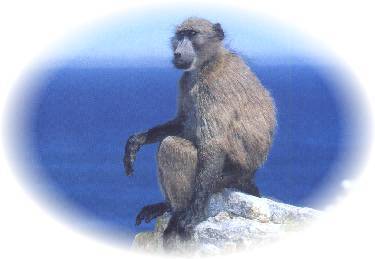ST. LOUIS - Lack of exercise - and not diet - causes obesity and diabetes among those who are predisposed to the conditions, suggests new research on wild baboons by Saint Louis University geriatricians published this month in the Journal of Clinical Endocrinology and Metabolism. Baboon Behavior Offers Clues In The All-too-human Battle Of The Bulge; Don't Be Too Quick To Blame Your Diet, New Research Suggests
In addition, researchers discovered that obese animals were NOT the ones with the highest cholesterol levels, suggesting cholesterol problems and obesity are triggered by different mechanisms.
"Figuratively speaking, if humans don't exercise, some are likely to become obese and as fat as baboons. You're genetically predisposed or you're not," says William A. Banks, M.D., professor of geriatrics in the department of internal medicine and professor of pharmacological and physiological science at Saint Louis University School of Medicine. "Our research suggests some people get obese by not spending all the calories they are taking in rather than taking in a large number of calories."
Researchers studied the eating and exercise patterns of two groups of wild baboons in East Africa. One group of baboons had to forage for their food. The others found a stash of food that humans had discarded that was much closer to where they lived, which meant they expended much less energy for their daily food raids. The fat content and number of calories that both groups of baboons ate was about the same, but the baboons that ate the leftovers didn't have to work as hard to get their food.
"More than a third of the baboons that didn't have to exercise as much to get their food had indications of obesity, evidence of early diabetes caused by insulin resistance and elevated cholesterol levels," says Banks, who also is a staff physician at Veterans Affairs Medical Center in St. Louis.
"The baboons' condition is similar to a condition in people called metabolic Syndrome X. Everything breaks down at once as patients develop diabetes, hyperlipedema, hypertension and obesity."
Most of the baboons that found the easy calories - seven out of 11 - did NOT develop the condition, indicating that some primates are more sensitive than others to becoming obese and diabetic. Their levels of leptin, the protein produced by fat and an indicator of obesity, were similar to those that had to forage in the wild for food.
"The implication for humans is some people can get away with indiscretions such as not exercising and will gain a little weight without suffering these serious health consequences. Other people are going to balloon out and get sick with less provocation," Banks says.
Surprisingly, the baboons with the highest cholesterol levels were those that ate the food discarded by people and had normal leptin levels, indicating that high cholesterol and obesity might be controlled by different factors.
"They're probably two separate but inter-related aspects. This may be telling us they segregate more than we thought," Banks says.
"This is a unique natural experiment with an uncanny replication of the human condition in a non-human primate. It's pointing to a bigger importance to exercise than we thought."
nextHOME
HedWeb
HerbWeb
Baboon Culture
Baboon Thought
Primate Species
Animal Rights FAQ
Orang-utan Culture
Paradise-Engineering
Baboons in Mourning
Baboons and their Offspring
dave@bltc.com
